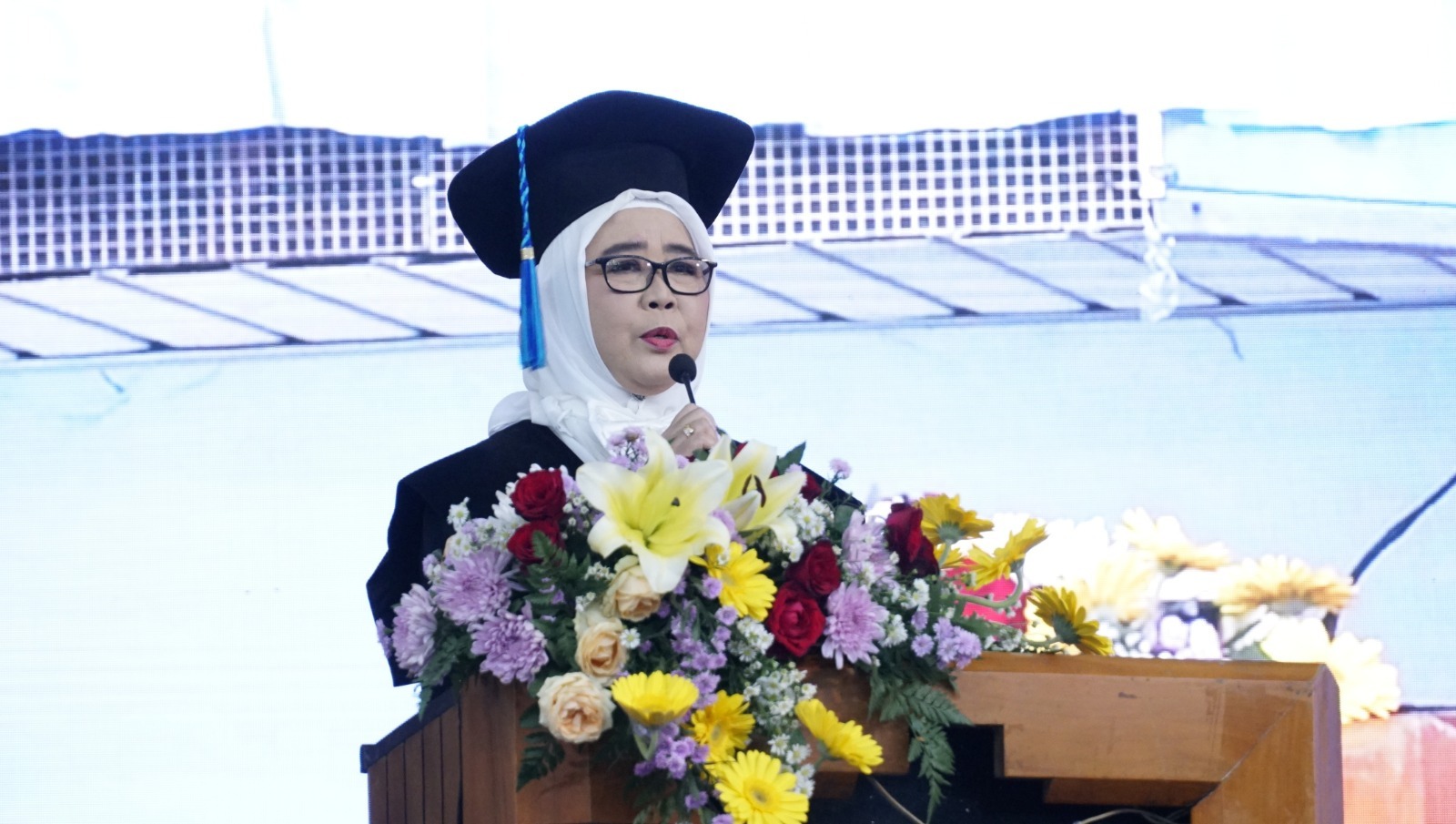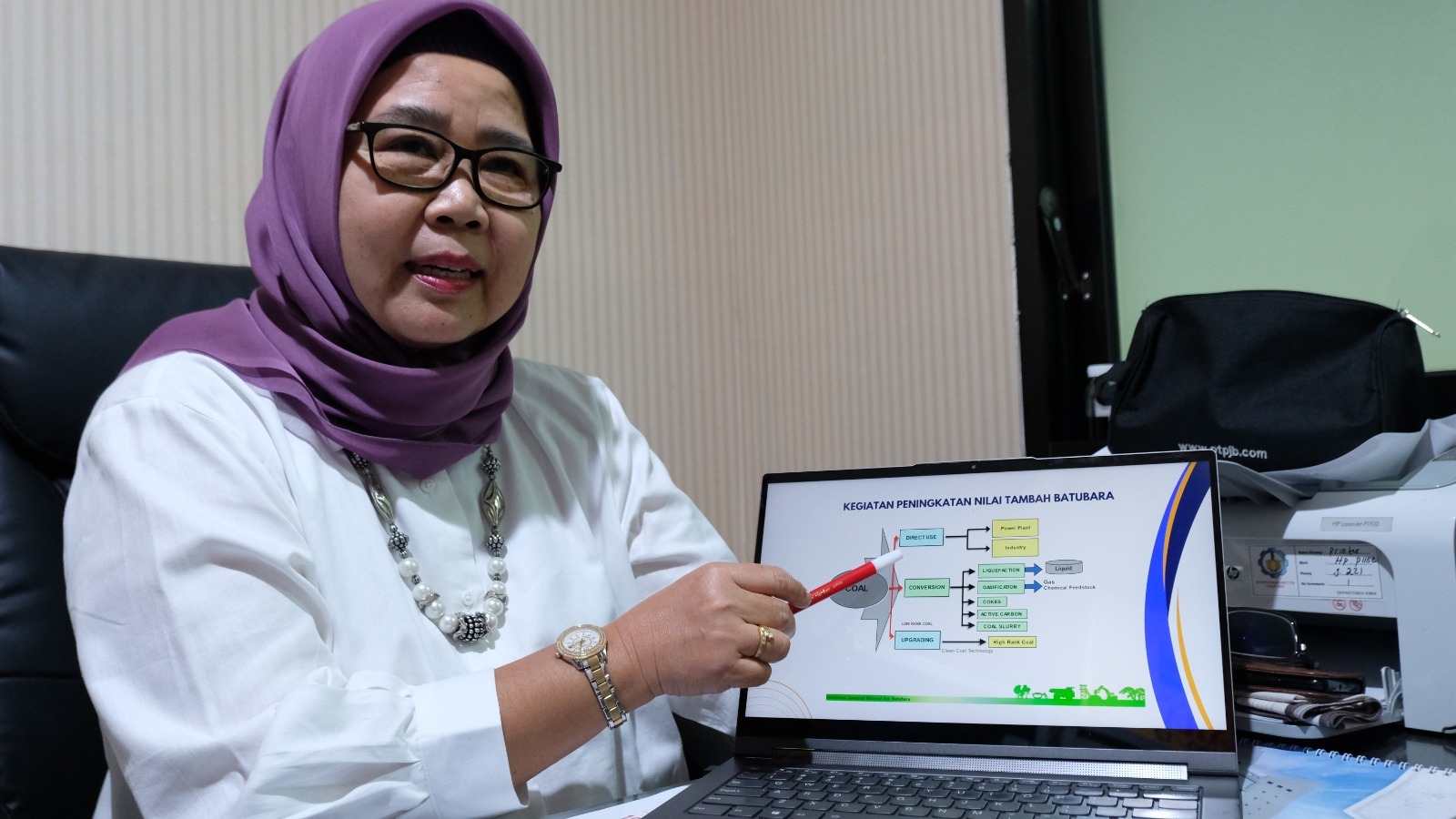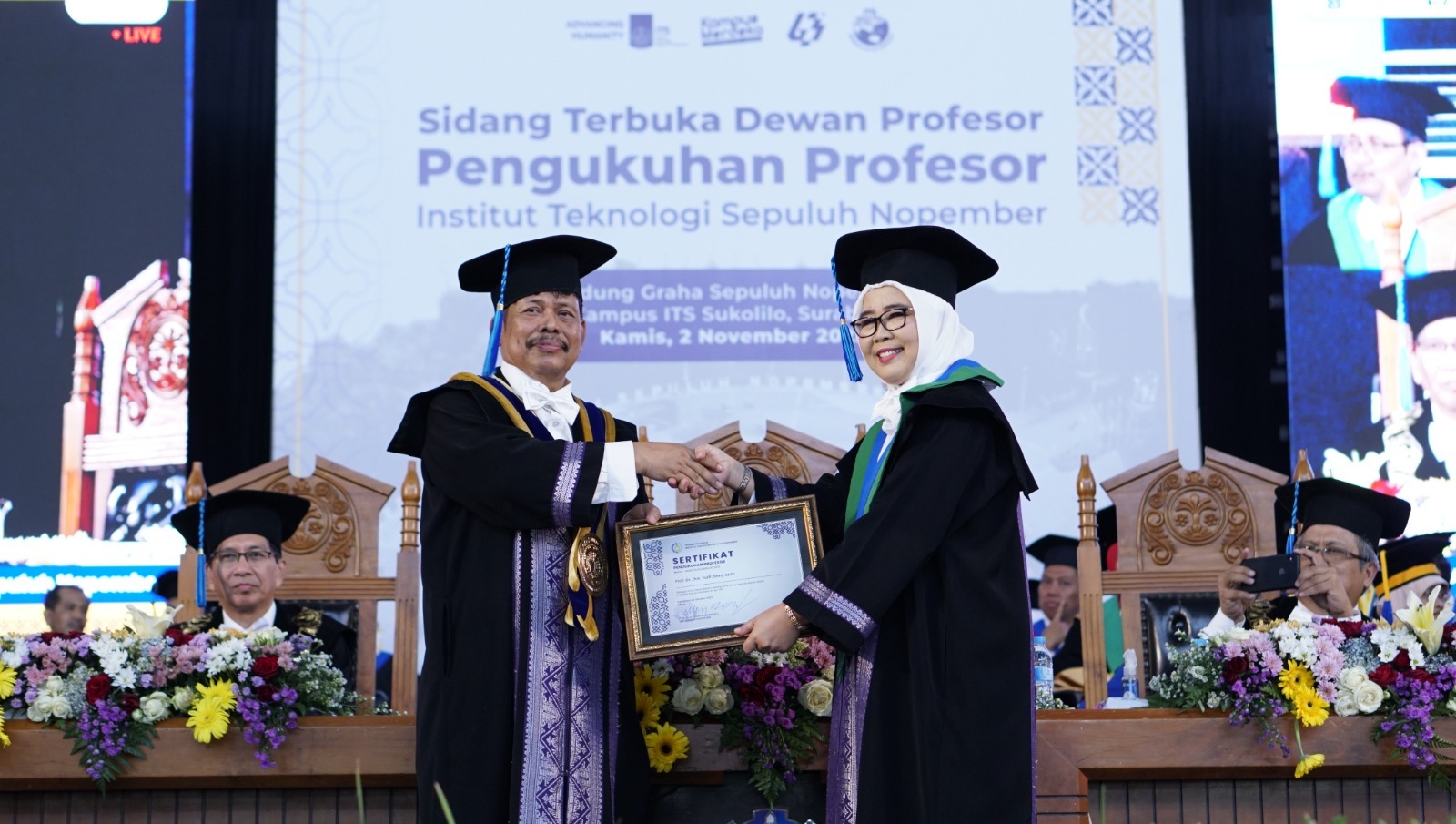ITS Professor Encourages Coal Optimization

Prof. Dr. Dra Yulfi Zetra MSc when delivering his scientific oration at his inauguration as a professor
ITS Campus, ITS News – The oil crisis due to increased use of fuel oil has encouraged the production of alternative resources. Based on this, the 193rd Professor of Institut Teknologi Sepuluh Nopember (ITS) Prof. Dr. Dra Yulfi Zetra MSc innovated the optimization of coal utilization through downstreaming solid coal into liquid and bioadditive synthesis from low-sulfur fossil fuels.
The Professor of the Department of Chemistry, Faculty of Science and Data Analytics (FSAD) ITS said that the level of fuel oil imports in Indonesia is increasing. In fact, Indonesia still has many resources other than petroleum. “One alternative is coal which can be processed so that it has similar properties to petroleum,” said Yulfi.
He also explained that coal processing has the potential to become an alternative fuel oil after going through the liquefaction process. This liquefaction is an effort to break down solid coal macromolecules into liquid so that it has a hydrogen per carbon ratio that is close to fossil oil. After the process called hydrogenation, coal will be obtained with a hydrogen per carbon ratio ranging from 1.2 – 1.8 from the original 0.3 – 0.9.
Furthermore, Yulfi reviewed the hydrogenation process starting from preparing the material to be processed by crushing the coal into small particles with a size of 200 mesh or the equivalent of 0.074 millimeters. After that, the particles will be mixed with several substances, including heavy oil solvent, SH limonite catalyst, as well as sulfur and hydrogen gas catalysts.

Prof Dr Dra Yulfi Zetra MSc explained several ways to increase the utilization of coal
The mixture is put into the coal liquefaction reactor and will be reacted at a temperature of 450 degrees Celsius and a pressure of 120 megapascals. After going through this process for 60 minutes, a coal product will be produced that has the expected hydrogen to carbon ratio. Next, the product goes through a fractionation distillation process at boiling temperatures ranging from 30 – 538 degrees Celsius to obtain several fractions, namely naphtha, Light Oil (LO), Middle Oil (MO), and Heavy Oil (HO).
However, unfortunately, the fraction products, one of which can be used as diesel fuel, still have quite high sulfur content. This has the potential to cause acid rain which can damage the environment when burning high-sulfur fuel. “So efforts are needed to desulfurize or reduce sulfur content to reduce the level of environmental damage,” said Yulfi.
Meanwhile, according to Yulfi, reducing the sulfur content is also not good for this fuel because it can reduce the lubricating power of the engine which can cause wear and decrease engine performance. To overcome this, the alumnus of the ITS Chemistry Department doctoral program also innovated the addition of a bioadditive in the form of the compound 2-hydroxyethyl ricinoleate from biological materials to maintain the lubricating power of the fuel.

193rd ITS Professor Prof Dr Dra Yulfi Zetra MSc (right) when receiving the professor’s inauguration certificate from the Chair of the ITS Professors Council Prof Dr Ir Imam Robandi MT
Through a series of processes, explained Yulfi, a fuel will be produced which is expected to be used as an alternative to fuel oil which continues to run low. Not only is this an alternative resource, this innovative product is also environmentally friendly. Looking at the potential of coal resources in Indonesia, Yulfi hopes that this innovation can continue to be developed.(ITS Public Relations)
Reporter: Mohammad Febryan Khamim
Related News
-
Ransomware Attacks PDN, ITS Expert Emphasizes the Importance of Cybersecurity
ITS Campus, ITS News — Challenges arising from technological advancements, ransomware is increasingly evolving and posing significant dangers by
January 25, 2024 20:01 -
ITS Hosts Indoor Handball Event at ASEAN University Games
ITS Rector Ir. Bambang Pramujati, ST, MScEng, PhD delivering the opening remarks for the 21st ASEAN University Games handball
January 25, 2024 20:01 -
ITS and KLHK Invite Young Generation to Anticipate UHI Dangers
ITS Rector Ir Bambang Pramujati ST MSc Eng PhD explaining the Urban Heat Island (UHI) phenomenon currently occurring in
January 25, 2024 20:01 -
Launching worship, ITS team develops MeccaBot application
ITS Campus, ITS News — Ready to help Hajj and Umrah congregations in worship, a team from the Digital
January 25, 2024 20:01
